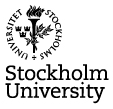Professor Karin Limburg on land use change
Professor Karin Limburg will on September 30, 2004 hold the seminar "Modeling and Measuring the Process and Consequences of Land Use Change: Drawing the “Red Thread" through Economy, Land Use, and Ecosystem Responses"
The economy of Dutchess County is described with a social accounting matrix; a major result is the ability to project changes in economic development and predict where in the county more development will likely occur.
This is tested with a probit-based land use change model. At the same time, we have made synoptic assessments of 33 stream sites in two major Hudson tributaries in the county, the Wappingers and Fishkill Creeks. Physical, chemical, geographic, and biotic indices are compiled, creating a multivariate data set. These data, when set into a geographic information database, provide a spatial response to land use.
The ultimate goal of the project is to provide a tool for policymakers, illustrating consequences of different development strategies.
About Karin Limburg
Prof. Karin Limburg is Associate Professor in Environmental and Forest Biology at the State University of New York, College of Environmental Science & Forestry, Syracuse, NY USA.
Karin Limburgs interests are broad, but pervasive themes include multidisciplinary studies of fisheries and ecosystems. She is the recipient of a National Science Foundation CAREER award to study fisheries in the context of watershed ecology.
She has published over 50 articles in journals ranging from economics to nuclear physics, and is the author of two books. Among her current research interests are developing methods of assessing watershed health, integrative economic/ecological models, and declines in diadromous fish species.
Time and place
Place: Beijer Hall, the Royal Swedish Academy of Sciences Lilla Frescativägen 4, Stockholm
Vacancies | Contact | Environmental policy | Cookies
Stockholm Resilience Centre
Stockholm University, Kräftriket 2B | Phone: +46 8 674 70 70 | info@stockholmresilience.su.se
Organisation number: 202100-3062 | VAT No: SE202100306201


